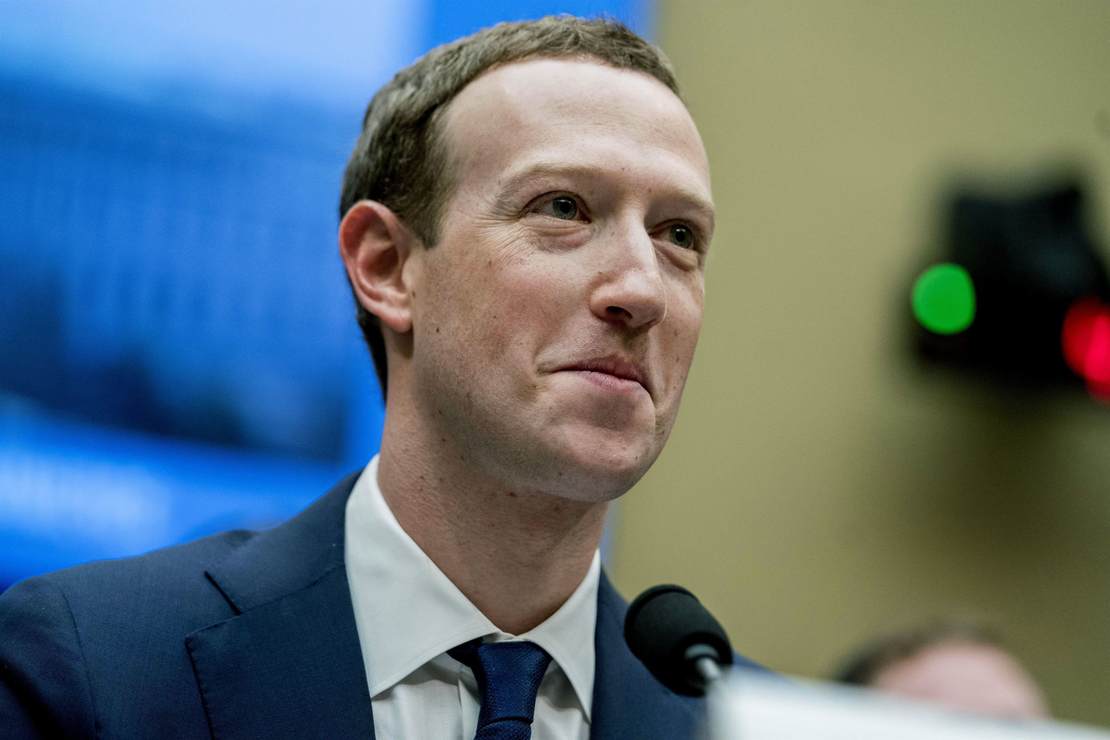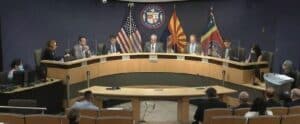Conservatives have long been perplexed by the 2020 presidential election. How did an elderly radical like Joe Biden, who spent much of the campaign in his basement, defeat the energetic and accomplished Donald Trump? Big Tech and legacy media bias explained some, but many irregularities plagued the election, as well. Time magazine published an astonishing story about a “cabal” and a “shadow campaign” that pulled the levers behind the scenes in the 2020 election. States passing election integrity reforms should zero in on preventing one particular nefarious strategy.
As election lawyer J. Christian Adams explained, the Mark Zuckerberg-funded Center for Technology ad Civic Life (CTCL) directed millions to government election offices around the country to “help” them conduct the 2020 election. These funds — commonly referred to as “Zuck bucks” — built “structural bias” into the election — converting “election offices in key jurisdictions with deep reservoirs of Biden votes into Formula One turnout machines.”
In Philadelphia, for instance, CTCL directed $10 million to boost the city’s election office, which normally has a budget of $9.8 million. The city used that money to hire local activists as city employees to drive around and collect ballots. Officials bought new printers and scanners to accommodate mail ballots. They established satellite election offices across Biden-friendly neighborhoods. They paid the public relations firm Aloysius Butler & Clark to design billboards, posters, bus advertisements, and print ads.
Recommended: The Real Kraken: What Really Happened to Donald Trump in the 2020 Election
“Hundreds of millions of private charitable dollars flowed into key urban county election offices in battleground states. The same private philanthropic largess did not reach red counties. Urban counties were able to revolutionize government election offices into Joe Biden turnout machines,” Adams explained.
CTCL built structural bias into the 2020 election, and it boosted turnout in deep-blue areas. As Adams noted, even if Trump increased his share of the black and Hispanic vote — which he did — this urban turnout machine easily swamped the president’s election efforts. “It doesn’t matter if Trump has 15 percent of the black vote in Detroit if turnout there soared by 92,891 Detroit votes, which it did. It doesn’t matter if Trump has even 20 percent of the black vote in Atlanta if turnout in DeKalb soared by 54,550 votes, which it did.”
The Capital Research Center (CRC) analyzed the grants CTCL distributed in key states — Arizona and Nevada, Texas, Michigan and Wisconsin, Virginia, North Carolina, Pennsylvania, and Georgia — revealing the partisan boost these efforts gave Biden in the 2020 election. A state-by-state analysis shows that CTCL’s partisan impact explains Biden’s margin of victory in key states.
Other problems plagued the 2020 presidential election. Officials “temporarily” weakened election safeguards in the name of streamlining voting during a pandemic — and Democrats now demonize as “Jim Crow” any effort to restore the old safeguards.
Yet the CTCL was arguably the Democrats’ most effective and sneaky effort to tilt the election in Biden’s favor — and states need to make it priority number one in their election reform laws.
Thankfully, many states have done just that.
CRC has analyzed recent election integrity bills, showing which efforts directly target CTCL-style schemes. Arizona’s H.B. 2569, for example, bans any public body that administers elections from receiving private money for election purposes. That bill passed on April 9, 2021. Florida’s S.B. 90, Georgia’s S.B. 202, Idaho’s S.B. 1168, Kansas’ H.B. 2332 and H.B. 2183, Missouri’s S.B. 333, North Dakota’s H.B. 1256, Tennessee’s H.B. 0996, and Texas’ S.B. 7 all ban election offices from receiving private funds to implement elections.
Some governors have vetoed similar efforts. The Kansas legislature overrode Gov. Laura Kelly’s (D-Kan.) veto. Gov. John Bel Edwards (D-La.) also vetoed the Louisiana bill, but the legislature is likely to override his veto. Gov. Tony Evers (D-Wisc.) vetoed the law that would have banned private funds for public officials in Wisconsin.
Many election integrity efforts have left out this key component of election reform. The Pennsylvania election integrity bill did not address this key issue. H.B. 3877 in South Carolina has not advanced out of a committee, despite Republican control in the legislature. The states of Michigan, Pennsylvania, Ohio, and Wisconsin desperately need this legislation.
J. Christian Adams sent PJ Media a copy of the South Carolina bill as a good example of the needed legislation. The bill is extremely short.
Recommended: Biden Dials Up His ‘New Jim Crow’ Rhetoric to an Absurd New Level
“Notwithstanding another provision of law, the State Election Commission and the county boards of voter registration and elections may not receive, accepts, or expend gifts, donations, or funding from private individuals, corporations, partnerships, trusts, or any third party not provided through ordinary state or county appropriations,” the bill reads.
Republicans across the country deserve to be commended for correcting the excesses of the 2020 election. Voter ID and other election safeguards enjoy high levels of support from a wide variety of voters, including Democrats and Independents. Most voters also oppose ballot harvesting. Yet election integrity efforts remain incomplete unless they address the CTCL-style funding that built structural bias into the 2020 election.


